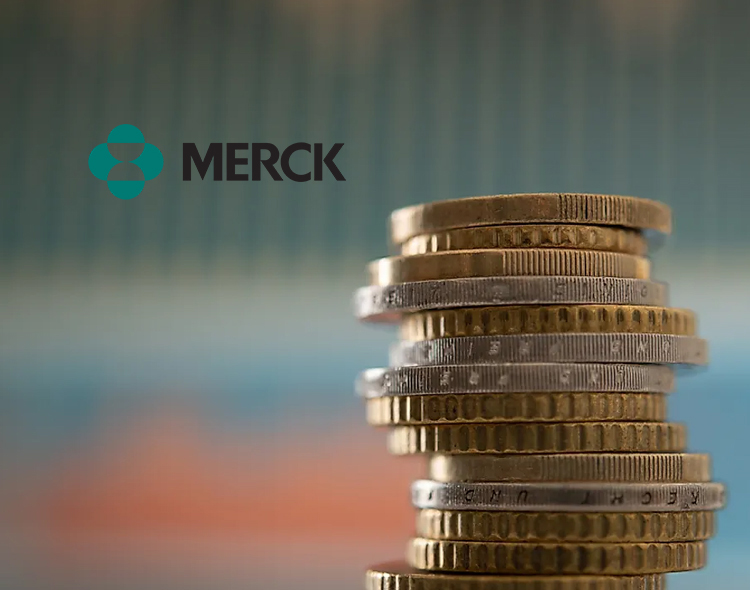Merck, known as MSD outside the United States and Canada, announced its inaugural issuance of a $1 billion sustainability bond, which was part of an $8 billion underwritten public offering of notes that closed on 2021.
Latest Fintech Insights: SVB Financial Group Acquires Technology Equity Research Firm MoffettNathanson LLC

Merck’s environmental, social and governance (ESG) efforts are grounded in the core values that have always guided the company’s mission to invent for life, with a responsibility to patients and animals in need of medicines and vaccines, and with respect, inclusion and accountability to its employees. The company’s 130-year legacy has been built on the understanding that operating responsibly, enabling access to health for the patients and communities it serves, investing in and cultivating the company’s employees, and reducing its impact on the environment underpins the success and long-term sustainability of its business.
“Announcement is an important step to further integrate ESG into the core of our business, accelerate the achievement of our ESG goals, and measure and continue to be transparent about our progress,” said Caroline Litchfield, chief financial officer, executive vice president, Merck.
Merck intends to use the net proceeds from this bond offering to support projects and partnerships in the company’s priority ESG areas and contribute to the advancement of the United Nations Sustainability Development Goals. These company projects and partnerships include:
- Access to essential services – health care, such as medicines and vaccines, maternal health programs, health care system strengthening, product donations, medical outreach, disaster and emergency relief, and patient assistance programs
- Infectious disease research and development that includes antimicrobial resistance, neglected and emerging diseases, and sexual and reproductive health
- Socioeconomic advancement and empowerment, particularly for minority and women-owned business enterprise (MWBE) suppliers, employee diversity and inclusion initiatives, and health literacy programs which serve people of all ages, races, incomes and education levels
- Renewable energy generation projects such as new onsite or offsite solar or wind generating capacity, as well as electricity generated from renewable sources
- Energy efficiency expenditures related to the company’s operations, such as energy-efficient heating, ventilation, air conditioning, refrigeration, lighting, roofing or electrical equipment, energy monitoring, control solutions and energy assessments, including smart meters and control automation devices
- Green buildings, including the design, development, construction and certification costs for new/existing facilities to meet LEED Gold or Platinum standards (or equivalent), as well as those which achieve at least a 30% improvement in energy use or GHG emissions
- Sustainable water and wastewater management to improve water quality or water efficiency, such as wastewater treatment, recycling and harvesting, overall reductions and reuse
- Pollution prevention and control projects to reduce and manage emissions to air or water, as well as recycling projects and efforts to divert non-hazardous and/or hazardous waste away from landfills
Browse The Complete News About Fintech : Crypto-collateralized Lending Offered By PayBito Gains Market Favor
The bond transaction is in line with Merck’s newly introduced Sustainability Financing Framework, which facilitates the company’s use of sustainable capital markets to finance or refinance eligible projects that align with its ESG commitments. This framework addresses the core components and key recommendations of the Social Bond Principles (2021), Green Bond Principles (2021), and Sustainability Bond Guidelines (2021), all of which are administered by the International Capital Markets Association (ICMA). V.E., a Moody’s affiliate, provided a second party opinion (SPO) on Merck’s Sustainability Financing Framework.
Merck has committed to annual reporting on the allocation of bond net proceeds to actual spend by social and/or environmental category, along with the remaining balance of unallocated proceeds. Where feasible, Merck will report estimated social and/or environmental quantitative impact metrics and provide qualitative case studies on eligible projects. For eligible social projects, Merck will seek to report impact metrics by target population to show how expenditures are enhancing access to the stated target population.
Read More About Fintech News : Genesis Custody Approved By UK FCA As Registered Cryptoasset Business
[To share your insights with us, please write to sghosh@martechseries.com]
